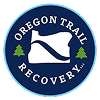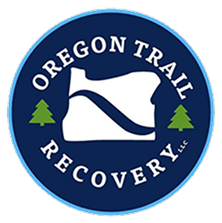Meditation in Recovery: Finding Inner Peace on Your Healing Journey

Key Takeaways
Here’s a quick overview of the following article:
- Meditation Defined: Meditation is a practice of focusing the mind to achieve calm and emotional stability, acting like exercise for the brain to build mental resilience in recovery.
- Benefits for Recovery: Meditation reduces stress, cravings, and anxiety, improves sleep and focus, and enhances self-awareness, addressing key challenges in addiction recovery.
- Historical Roots: Originating in ancient Hindu and Buddhist traditions, meditation’s benefits for reducing pain and distress are now supported by modern science.
- Practical Starting Points: Beginners can start with 5-10 minutes daily, focusing on breathing in a quiet space, using guided meditations to build a sustainable habit.
- Overcoming Stigma: Meditation is accessible to everyone, not just spiritual or “new age” individuals, and is widely used in medical and therapeutic settings.
Take the first step toward healing by contacting Oregon Trail Recovery to explore how our team can help you heal from substance use disorder (SUD).
Important Disclaimer
Oregon Trail Recovery is not certified or licensed as a mental health treatment provider. However, our recovery team understands that mental wellness is critical to sustainable sobriety. That’s why we integrate trauma-informed care and whole-person wellness opportunities through evidence-based approaches within our treatment framework.
We also integrate various wellness practices, such as outdoor adventures and mindfulness meditation, to help our patients set the foundation for long-term healing and create healthy coping mechanisms.
What is Meditation?
Meditation is the practice of training your mind to focus and find calm. It involves sitting quietly and paying attention to your breath, thoughts, or feelings without judgment.
Think of meditation as exercise for your brain. Just like physical exercise makes your body stronger, meditation in recovery makes your mind more resilient. You learn to observe your thoughts without being controlled by them.
There are many types of meditation. While some focus on breathing, others use guided imagery or mantras. However, the goal is always the same: to create a sense of peace and awareness in the present moment.
Where Did Meditation Originate?
Meditation has ancient roots that go back thousands of years. It began in India around 1500 BCE as a part of Hindu traditions. Buddhist monks later developed their own meditation practices around 500 BCE.1
These early practitioners discovered that meditation in recovery from suffering was incredibly powerful. They found that regular practice could reduce pain, anxiety, and mental distress.
Today, meditation is practiced by millions of people worldwide – it's no longer tied to any single religion or culture. Modern science has proven what ancient teachers knew: meditation changes the brain in positive ways.2
Is Meditation Spiritual?
Meditation can be spiritual, but it doesn't have to be. Many people practice meditation in recovery without having any religious beliefs as a way to improve their mental health and well-being.
However, some recovery programs do incorporate spiritual elements. For example, Buddhist-based programs like Refuge Recovery use meditation as part of their spiritual approach.3
There are multiple ways to integrate meditation in recovery, meaning the choice is yours in how you want to dive into treatment – both approaches are valid and effective.
What matters most is finding what works for you. Some people find comfort in the spiritual aspects, while others prefer the scientific approach. Either way, meditation can support your recovery journey.

Why Meditation is Beneficial
Meditation in recovery offers many proven benefits that can directly address the challenges people face during addiction recovery.
Some of these benefits include:
- Stress Reduction: Meditation acts as a powerful stress reliever by creating calm and peaceful mental space. Since stress is one of the biggest triggers for relapse, learning to manage it is crucial.4
- Emotional Regulation: Regular practice helps you develop better control over your emotions. This means less anxiety, depression, and anger that can lead to substance use.5
- Improved Focus: Meditation in recovery enhances your ability to concentrate and stay present. This helps you engage more fully in therapy and other treatment activities.6
- Better Sleep: Many people in recovery struggle with sleep problems. Meditation can improve sleep quality and help you feel more rested. 7
- Reduced Cravings: Meditation in recovery can actually reduce drug and alcohol cravings. This happens because meditation changes how your brain responds to triggers.8
- Enhanced Self-Awareness: Through meditation, you become more aware of your thoughts, feelings, and behaviors, which can help you recognize triggers.9
Utilizing meditation in recovery can help you create a life you love, both during and after treatment.
Where to Start with Meditation in Recovery
Starting meditation in recovery doesn't require special equipment or training. You can begin with just five minutes a day.
Here's how to get started:
- Find a Quiet Space: Choose a place where you won't be disturbed. This could be your bedroom, a park, or even your car.
- Start Small: Begin with just 5-10 minutes of meditation in recovery practice. You can gradually increase the time as you get more comfortable.
- Focus on Your Breath: Simply pay attention to your breathing. When your mind wanders, gently bring it back to your breath.
- Be Patient: Meditation is a skill that takes time to develop. Don't expect immediate results. Most people need several weeks of regular practice to see benefits.
- Use Guided Meditations: Apps and online videos can help guide you through meditation in recovery sessions. This is especially helpful for beginners.
You can also try to meditate at the same time each day. This helps establish a routine and makes it easier to stick with the practice.
Breaking the Stigma Around Meditation
Some people worry that meditation in recovery is too "new age” for them, while others think it's just for certain types of people. These beliefs can prevent people from trying a practice that could really help them.
The truth is that meditation is for everyone. You don't need to be spiritual or flexible or have any special abilities – you just need to be willing to try something new.
If you're hesitant about meditation in recovery, remember that it's just one tool in your toolkit. You can try it and see if it works for you. There's no commitment required except to yourself.
Restoring Mental Wellness in SUD Recovery
Substance use disorder affects both the brain and one’s mental health. Meditation in recovery helps restore mental wellness by addressing these underlying issues.
Utilizing meditation in recovery can help in the following areas:
- Brain Changes: Addiction changes the brain's structure and function, but meditation in recovery can help reverse some of these changes, as it strengthens areas of the brain responsible for self-control and decision-making.10
- Reducing Depression: Depression is common in early recovery, but studies show that meditation in recovery can reduce depressive symptoms as effectively as antidepressant medication.11
- Improving Mood: Regular meditation practice leads to more positive emotions and better overall mood. This makes it easier to stay motivated in recovery.
- Enhancing Emotional Intelligence: Meditation in recovery helps you understand and manage your emotions better. This is crucial for maintaining healthy relationships and making good decisions.
Research also shows that patients who practice mindfulness are more likely to complete treatment programs and have lower relapse rates.12
This demonstrates the real-world effectiveness of meditation in recovery.
Types of Meditation for Recovery
Different types of meditation in recovery work better for different people. Here are some common approaches used in addiction treatment:
- Mindfulness Meditation: This is the most common type of meditation in recovery. It involves paying attention to the present moment without judgment.
- Loving-Kindness Meditation: This practice focuses on developing compassion for yourself and others. It's particularly helpful for people who struggle with shame and guilt about their addiction.
- Body Scan Meditation: This involves systematically focusing on different parts of your body. It helps you become more aware of physical sensations and can reduce anxiety and tension.
- Breath Awareness: Simply focusing on your breathing is one of the most accessible forms of meditation in recovery. It can be done anywhere and helps calm the nervous system quickly.
- Walking Meditation: This combines gentle movement with mindfulness. It's perfect for people who have trouble sitting still or who want to incorporate meditation into outdoor activities.
While we don’t offer meditation services directly, our team at Oregon Trail Recovery can help you explore a variety of recovery tools and find what works best for your healing process.
Meditation and Mindfulness Sobriety
Mindfulness sobriety is not just about avoiding substances; it's about living fully in each moment.
Meditation in recovery is the foundation of mindfulness sobriety. Through regular practice, you develop the ability to stay present even during difficult times. You learn to respond to challenges rather than react impulsively.
This approach to recovery recognizes that healing happens in the present moment. You can't change the past or control the future, but you can choose how to respond to what's happening right now.
Finding Inner Peace Through Practice
Meditation in recovery helps you find inner peace by teaching you to let go of things you can't control. You learn to accept difficult emotions without being consumed by them.
Also, inner peace doesn't mean you'll never feel stressed or upset. It means you'll have tools to return to a state of calm and balance. You'll know that difficult feelings are temporary and will pass.
Through meditation in recovery, you develop a deeper understanding of yourself. You learn to treat yourself with compassion and kindness. This self-acceptance is a crucial part of finding inner peace.
The Role of Community in Meditation Practice
While meditation in recovery can be practiced alone, having community support makes it more effective. Many treatment centers and recovery programs now offer group meditation sessions.
Some recovery communities have embraced meditation as a central practice. Even in traditional 12-step programs, many people find that meditation in recovery enhances their spiritual practice. It provides a concrete way to connect with their higher power and find serenity.

Find Your Path to Healing at Oregon Trail Recovery
Recovery is about more than just stopping substance use – it’s about finding a way to live with purpose, clarity, and support. At Oregon Trail Recovery, we understand that healing looks different for everyone. That’s why our programs are built around the whole person, not just the symptoms.
Whether you’re struggling with addiction, trauma, or both, we’re here to provide compassionate care that meets you where you are. Our Oregon recovery team brings both clinical expertise and personal experience to the table, creating a safe, structured space where real change can happen.
You Deserve a Life You Love
You don’t have to have everything figured out to start – you just have to take the first step. Recovery takes time, and there will be ups and downs, but you don’t have to face them alone.
If you or someone you love is ready to begin a new chapter, reach out to Oregon Trail Recovery. We’re here to help you heal.
Resources
- https://positivepsychology.com/history-of-meditation/
- https://www.health.harvard.edu/mind-and-mood/mindfulness-meditation-practice-changes-the-brain
- https://pmc.ncbi.nlm.nih.gov/articles/PMC9992926/
- https://pmc.ncbi.nlm.nih.gov/articles/PMC4142584/
- https://pmc.ncbi.nlm.nih.gov/articles/PMC6795685/
- https://pmc.ncbi.nlm.nih.gov/articles/PMC6088366/
- https://pmc.ncbi.nlm.nih.gov/articles/PMC6557693/
- https://pmc.ncbi.nlm.nih.gov/articles/PMC6247953/
- https://www.sciencedirect.com/science/article/abs/pii/S016643281830322X
- https://pubmed.ncbi.nlm.nih.gov/29651257/
- https://pmc.ncbi.nlm.nih.gov/articles/PMC4383597/
- https://wvutoday.wvu.edu/stories/2023/11/15/wvu-research-shows-mindfulness-may-improve-substance-use-treatment







